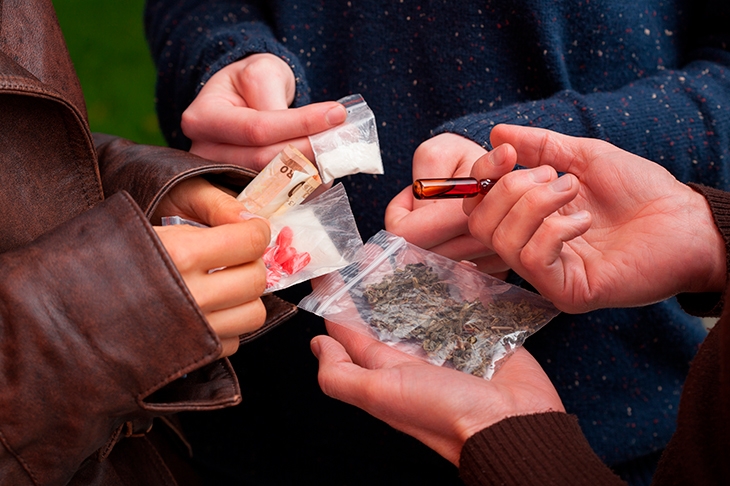According to the Metropolitan Police Commissioner Cressida Dick, the easing of lock-down will be accompanied by a rise in crime in the capital, including the violent type associated with drug gangs. Just last week, the police recovered two zombie knives, two Rambo-style blades and a kitchen knife at the scene of an attack on a 16-year-old boy in Brixton. But it would be wrong to view this coming crimewave as a problem that just affects London’s underclass. According to Sheldon Thomas, the chief executive of an outreach organisation called Gangsline, a rising number of middle-class teenagers are being sucked into the gangster lifestyle in the wake of Covid.
Thomas rather uncharitably attributes this to ‘the phenomenon of loveless middle-class homes’. The teenage children of white-collar workers, he says, having been confined to barracks for the best part of a year, now realise their parents ‘tolerate rather than like them’. In an interview with the Telegraph, he suggested the tight-knit communities of county lines drug gangs become surrogate families for these love-starved teens.
For free-range kids brought up by liberal parents, the gangs’ clear boundaries may be part of the appeal
I’ve often puzzled over why it is that drug dealers and assorted minor underworld figures are considered so irresistibly glamorous by middle-class London children. This has come up in conversation with teachers at the secondary school I co-founded in west London, as well as with other dads of teenagers. For boys brought up on the local council estates, becoming a county lines drug mule may be their quickest route out of poverty, albeit a risky one. But their middle-class counterparts have no such excuse. They could be lawyers, accountants, management consultants, yet they’ve decided to pursue a career in the marijuana business instead. Much less money in the long run, and if you screw up you don’t end up looking for another job but entangled in the criminal justice system. Plus, you might get stabbed with a zombie knife. Why?
I think Sheldon Thomas is half right, and that these children are looking for something they can’t find in their semi-detached Victorian homes. But it’s not love — it’s order. A common misconception about this particular criminal subculture is that it’s chaotic and amoral — a dog-eat-dog world in which the fittest survive and the weakest are preyed upon. But that’s not completely true. In my own limited contact with this milieu — seen through the eyes of local charities and community organisers — it is less like a cage-fighting tournament than a patchwork quilt of rival para-military guerrilla groups. Far from being chaotic, the drug gangs operate according to a strict set of rules and the penalty for breaking them is severe. For free-range kids brought up by liberal parents, these clear boundaries may be part of the appeal.
This subculture may not attach much value to the rule of law, but in some respects it’s ultra-conservative. For instance, gender roles are very traditional, with men expected to be good providers and women devoted stay-at-home mums. If you’ve been brought up in homes where gender roles are confused, because both Mum and Dad work, this throwback to the 1950s must be strangely attractive. Of course there are exceptions — teenage girls employed as drug couriers — but they rarely have leadership roles.
The gangs are also blessedly free of the culture of victimhood. I don’t mean the drug dealers aren’t prone to bouts of self-pity and fatalism, but they don’t exaggerate how marginalised and disempowered they are to earn pity points from their peers. Rather, this is a strong-man culture in which the top dog — the gangland equivalent of the prime minister — is usually feared and respected. In fact, seen from a distance, this whole macho subculture seems to have more in common with Boris Johnson’s Conservative party than it does with Keir Starmer’s Labour party.
This, then, is my theory about why middle-class teens are drawn to the people they refer to as ‘road men’. Yes, it’s the drugs and the music and the thrill of being in a real-life videogame. But above all it’s the old-fashioned conservative values of the drug-dealers that make them so attractive. In a world in which the liberal order is on the verge of collapse and the people and institutions that used to possess authority are engaged in endless bouts of self-flagellation, there’s something weirdly compelling about these unapologetically masculine warlords. They are the traditional father figures that my friends and I have failed to be.







Comments